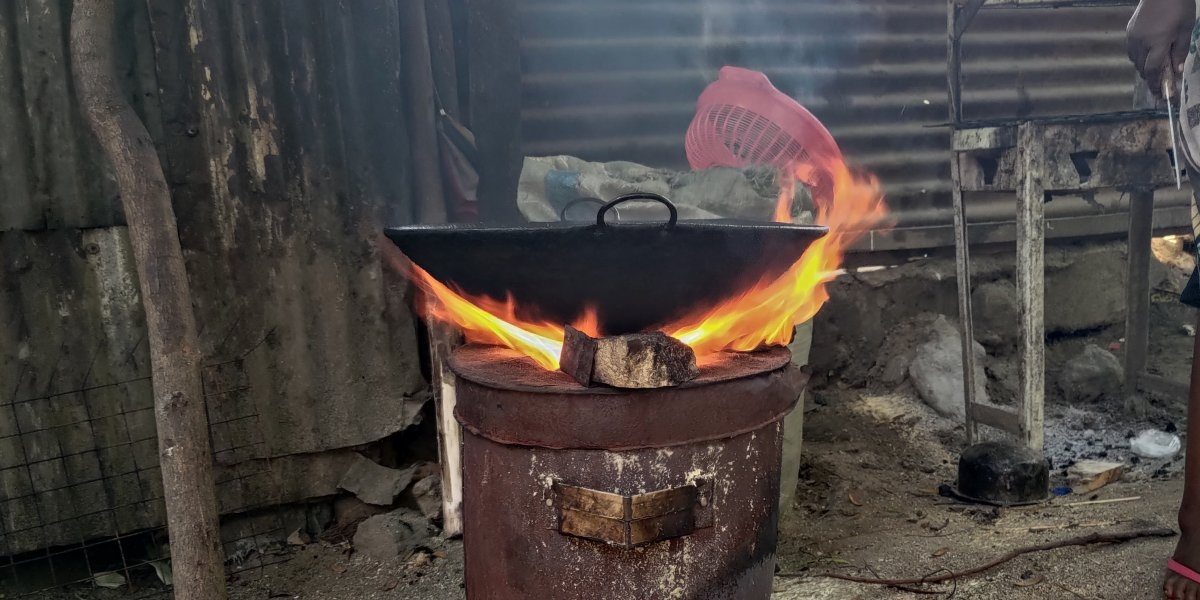4CImpacts - Universal Energy Access: Clean cooking and climate change impacts
Lack of access to clean cooking technology is the single largest environmental risk factor for disease and disability in countries relying on traditional biomass fuels for household energy due to household air pollution.
Cooking in Tanzania. Photo: Mikkel Vindegg
Prosjektfakta
It is estimated that household air pollution causes somewhere between 2.3 and 3.8 million deaths annually. In addition, the use of traditional biomass fuels for household cooking and heating may increase global warming due to deforestation and emissions of greenhouse gases and short-lived climate pollutants. In this context, Liquified Petroleum Gas (LPG) may play a vital role as it provides a clean and easy to use cooking technology.
This project will provide knowledge on the requirements for more equitable uptake of LPG as a clean cooking fuel in Tanzania, as well as develop a better understanding of the potential positive impacts of an energy transition.
In Tanzania, only 2% of the population has access to clean cooking technology, and the mortality burden from HAP is high, with an estimated 29,000 – 50,000 premature deaths per year.
To better understand how clean energy technologies such as LPG can be scaled up we need we critical research on how cooking technologies matter in people’s lives, and how this information can inform policies for a comprehensive and equitable energy transition towards more sustainable energy use.
To fulfill this objective 4CImpacts has a highly inter-disciplinary focus combining social and natural science perspectives.
Research
During the three year project period 4CImpacts will explore three main conditions for upscaling LPG;
1) How can government, donors and financing institutions facilitate and support scaling clean fuels for household cooking?
2) How do socio-economic and cultural factors influence people’s daily choices of fuel usage and motives to adopt LPG for cooking in Tanzania?
3) What delivery model innovations increase access and uptake of LPG for cooking among different socio-economic groups, and how? Here we will have a particular focus on schemes such as ‘Pay as you go’ where customers can decrease up-front costs of investing in new cooking technology.
Further, 4CImpacts will study the effects of a transition to clean cooking with LPG on human health, climate emissions and social dimensions in Tanzania.
To provide holistic knowledge on these dimensions 4CImpacts will carry out a large-scale survey combined with in-depth interviews and stove use and HAP monitoring of households in peri-urban Dar Es-Salam. In addition, we will interview and engage with relevant stakeholders such as LPG providers, policy-makers and civil society actors. The effects on health, social dimensions and climate emissions will be analysed through state of the art modelling.
Project participants
CICERO, Center for International climate research
